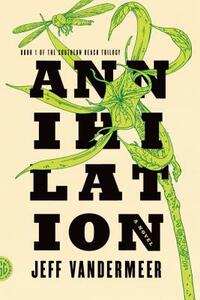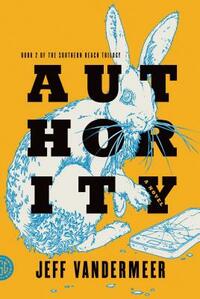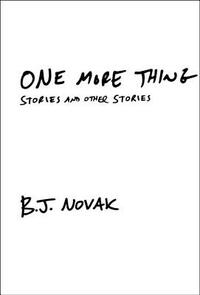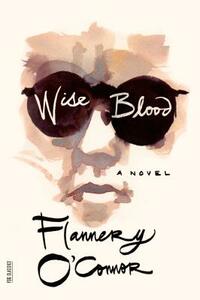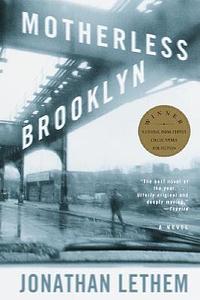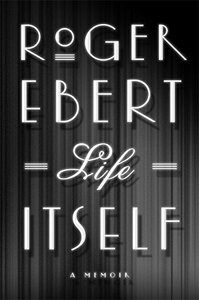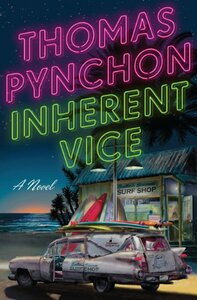Take a photo of a barcode or cover
matthewcpeck's Reviews (587)
A beautifully crafted adventure/nightmare. This is a book that drops you into its story with little exposition apart from flashbacks and other dribs and drabs along the way - some may find this frustrating, but I found that it worked marvellously for its story.
'Annihilation' resembles 'At The Mountains Of Madness' written in the age of climate change and gene splicing. It's truly creepy and suspenseful, and I imagine that its effects would be most potent if read in a quiet, rural location near a body of water...but even on my urban train rides, I was haunted. Looking forward to the next volumes.
'Annihilation' resembles 'At The Mountains Of Madness' written in the age of climate change and gene splicing. It's truly creepy and suspenseful, and I imagine that its effects would be most potent if read in a quiet, rural location near a body of water...but even on my urban train rides, I was haunted. Looking forward to the next volumes.
In an era that's saturated with apocalyptic sci-fi trilogies, it's nice to see something as idiosyncratic as the Southern Reach. VanderMeer's second installation 'Authority' has a completely different viewpoint, style, and tone from 'Annihilation'. I feel that all trilogies should follow this template - that is, 3 distinct works, instead of one book basically split in three for marketing purposes.
On the downside, 'Authority' is not as perfect and arresting as its predecessor. This considerably longer novel tells the story of the government agency in charge of the expeditions, immediately after the one detailed in 'Annihilation'. The protagonist is a youngish operative dubbed 'Control' that's been appointed as director, and most of the book's first half is about Control's maneuvering through layers of bureaucracy and paranoia. I found it a little tedious, threatening to become boring, if well-written. The second half is an improvement, filled with twists and scares that burrow into your subconscious.
Looking forward to the final part. 'The Southern Reach Trilogy' fulfills the promise seen in the eclecticism of VanderMeer's short fiction, but the prose is vastly more assured and sophisticated.
On the downside, 'Authority' is not as perfect and arresting as its predecessor. This considerably longer novel tells the story of the government agency in charge of the expeditions, immediately after the one detailed in 'Annihilation'. The protagonist is a youngish operative dubbed 'Control' that's been appointed as director, and most of the book's first half is about Control's maneuvering through layers of bureaucracy and paranoia. I found it a little tedious, threatening to become boring, if well-written. The second half is an improvement, filled with twists and scares that burrow into your subconscious.
Looking forward to the final part. 'The Southern Reach Trilogy' fulfills the promise seen in the eclecticism of VanderMeer's short fiction, but the prose is vastly more assured and sophisticated.
Lots of reviewers have expressed surprise at the skill and range of B.J. Novak's literary début - perhaps they've forgotten that he's already a writer that happens to do some acting, and not some deluded actor that's decided to give fiction a try. Plus he's from the Boston area, so you just know he's wicked smaht.
Whatever the case, 'One More Thing' is the work of a born writer, and it makes me wonder about other sitcom writers that might have unpublished treasures sitting on their hard drives. The pieces range from Tweet-size to standard short-fiction length, but mostly on the brief side. They are as hilariously witty and culturally well-informed as you'd expect, and a few times - in the longer stories especially - graceful and heartbreaking. Just a few of my favorites:
-"Missed Connection: Grocery spill at 21st and 6th 2:30 pm on Wednesday", an epic faux-Craigslist posting about a chance meeting turned one-night stand
-"Sophia", a genuinely moving inversion of 'Her' in which the narrator tries to return a state-of-the-art sexbot after it falls in love with HIM
"Wikipedia Brown and the Case of the Missing Bicycle" - just what it sounds like, and spot-on funny
"Kellogg's (or: The Last Wholesome Fantasy of the Middle-School Boy", my favorite in the book, about a boy that wins a Corn Flakes cash prize that ultimately upends everything he thought he knew about his paternity
"One of These Days, We Have to Do Something About Willie": former college buddies' botched attempt to stage an intervention for a friend, in Las Vegas. With its cringe-inducing misadventures, it's the most 'Office'-like story in the book
There's quite a lot of stuff in here that's probably collected from many years' worth of writing, so some of the pieces are inevitably more insubstantial and flimsy than others. But it's never indulgent or precious. 'One More Thing' has the right mix of playful humor, keen observations, erudition, and punchlines that make me look forward to Novak's future endeavors.
Whatever the case, 'One More Thing' is the work of a born writer, and it makes me wonder about other sitcom writers that might have unpublished treasures sitting on their hard drives. The pieces range from Tweet-size to standard short-fiction length, but mostly on the brief side. They are as hilariously witty and culturally well-informed as you'd expect, and a few times - in the longer stories especially - graceful and heartbreaking. Just a few of my favorites:
-"Missed Connection: Grocery spill at 21st and 6th 2:30 pm on Wednesday", an epic faux-Craigslist posting about a chance meeting turned one-night stand
-"Sophia", a genuinely moving inversion of 'Her' in which the narrator tries to return a state-of-the-art sexbot after it falls in love with HIM
"Wikipedia Brown and the Case of the Missing Bicycle" - just what it sounds like, and spot-on funny
"Kellogg's (or: The Last Wholesome Fantasy of the Middle-School Boy", my favorite in the book, about a boy that wins a Corn Flakes cash prize that ultimately upends everything he thought he knew about his paternity
"One of These Days, We Have to Do Something About Willie": former college buddies' botched attempt to stage an intervention for a friend, in Las Vegas. With its cringe-inducing misadventures, it's the most 'Office'-like story in the book
There's quite a lot of stuff in here that's probably collected from many years' worth of writing, so some of the pieces are inevitably more insubstantial and flimsy than others. But it's never indulgent or precious. 'One More Thing' has the right mix of playful humor, keen observations, erudition, and punchlines that make me look forward to Novak's future endeavors.
I'm a sucker for variations on the private-eye narrative. Like cowboys or serial killers, old-school private detectives have an outsized presence in American pop culture, even as their numbers were and are pretty small in the 'real' world. And just as you think the genre is squeezed dry, another writer or filmmaker comes along and surprises us with their original take.
Lethem's 1999 novel (only the second I've read after 'As She Climbed Across The Table') is one of these idiosyncratic genre pieces, telling the story of a thirtysomething Brooklynite with Tourette Syndrome, the beautifully named Lionel Essrog. Lionel - along with three compatriots from his childhood orphanage - works for a slightly corrupt private detective agency fronting as a car service, headed by his coolly enigmatic mentor Frank Minna. When Minna is murdered by an unknown party during a seemingly routine errand in the first chapter, the agency is left in shambles and Lionel becomes fixated on avenging the death of his father-figure. That plot promises dreariness, as do the title and cover design. But this a book narrated by an extremely likable, vivacious, comically heart-rending character.
I don't know anyone with the syndrome, but - based at least on the articles and documentaries I've seen - Lethem has crafted a fairly realistic, non-exploitative and unsentimental portrait of Tourette's. Lionel's particular tics are a mix of imitations, touching, mild OCD, and shouted nonsense phrases that twist words and sentences into puns out of Lewis Carroll or James Joyce. Lethem puts these outbursts, which are an example of the TS tendency to get new words 'stuck in the head', in italics. This wordplay starts to get a little tiresome towards the end, but it provides plenty of wit and humiliation-humor along the way. People with TS describe the urge to tic as quasi-physical, like a rising pressure in the chest. It's ingenious, on Lethem's part, to foist these symptoms upon a man whose profession requires frequent inconspicuousness. And because it's a spectrum disorder, every case is different and orphaned Lionel has nothing to which he can compare it. In a simple but eerily affecting moment, he reflects that he has no 'control' self, and thus is unable to determine if a strange mental habit is a symptom of Tourettes's or just his own weird personality.
'Motherless Brooklyn' is wonderfully written and entertaining throughout, but I found the other, non-Lionel characters a bit thin, which is perhaps deliberate - you gotta have your femme fatale, monstrous hitman, and elderly, menacing mafiosos. On an emotional level, I left the book feeling not terribly more moved than I would after any run-of-the-mill detective novel. It works splendidly as a peek inside the machinations of a unique brain, and as a topography of millennial Brooklyn (and its eateries), and it's still fun and smart enough to make me read the rest of Lethem's work.
Lethem's 1999 novel (only the second I've read after 'As She Climbed Across The Table') is one of these idiosyncratic genre pieces, telling the story of a thirtysomething Brooklynite with Tourette Syndrome, the beautifully named Lionel Essrog. Lionel - along with three compatriots from his childhood orphanage - works for a slightly corrupt private detective agency fronting as a car service, headed by his coolly enigmatic mentor Frank Minna. When Minna is murdered by an unknown party during a seemingly routine errand in the first chapter, the agency is left in shambles and Lionel becomes fixated on avenging the death of his father-figure. That plot promises dreariness, as do the title and cover design. But this a book narrated by an extremely likable, vivacious, comically heart-rending character.
I don't know anyone with the syndrome, but - based at least on the articles and documentaries I've seen - Lethem has crafted a fairly realistic, non-exploitative and unsentimental portrait of Tourette's. Lionel's particular tics are a mix of imitations, touching, mild OCD, and shouted nonsense phrases that twist words and sentences into puns out of Lewis Carroll or James Joyce. Lethem puts these outbursts, which are an example of the TS tendency to get new words 'stuck in the head', in italics. This wordplay starts to get a little tiresome towards the end, but it provides plenty of wit and humiliation-humor along the way. People with TS describe the urge to tic as quasi-physical, like a rising pressure in the chest. It's ingenious, on Lethem's part, to foist these symptoms upon a man whose profession requires frequent inconspicuousness. And because it's a spectrum disorder, every case is different and orphaned Lionel has nothing to which he can compare it. In a simple but eerily affecting moment, he reflects that he has no 'control' self, and thus is unable to determine if a strange mental habit is a symptom of Tourettes's or just his own weird personality.
'Motherless Brooklyn' is wonderfully written and entertaining throughout, but I found the other, non-Lionel characters a bit thin, which is perhaps deliberate - you gotta have your femme fatale, monstrous hitman, and elderly, menacing mafiosos. On an emotional level, I left the book feeling not terribly more moved than I would after any run-of-the-mill detective novel. It works splendidly as a peek inside the machinations of a unique brain, and as a topography of millennial Brooklyn (and its eateries), and it's still fun and smart enough to make me read the rest of Lethem's work.
I recall that the first Roger Ebert review I'd ever read was a pan of 'Empire Records', a now-forgotten comedy that was frequently viewed by my junior-high friends and me. When browsing its 'External Reviews' page on a nifty new website calling itself the Internet Movie Database, I noticed that the Chicago Sun-Time's Ebert was one of the very few linked reviews for an established, professional journalist. I was further intrigued to discover that the Sun-Times website held an archive of seemingly every movie review that Ebert had written for that paper, and so I spent hours of precious dial-up internet time consuming decades of witty, insightful, accessible criticism as I bloomed into a film nerd. It's likely that a lot of bookish kids in my generation had a similar experience, and that many became critics themselves. In addition to the early online availability, Ebert's reviews were distinctive for their lucidity and their personal bent - he never studied film in school, but was a journalist from his teens. He brought himself (an anecdotal "I") into his reviews often, a technique that is still surprisingly scarce in most film criticism. And the passion with which he praised his 'Great Movies' was truly contagious.
It's these qualities that make 'Life Itself' such an absorbing read, even if you're like me and generally unenthused towards autobiographies. Running from his Urbana childhood to his post-surgical state, the book candidly details highlights (landing a plum critic job at a time when print journalism and American filmmaking were at an apex; life on the set with Russ Meyer; his late marriage to Chaz) and low points (an inherited alcoholism, debilitating illness). Apart from a section comprised of profiles of his cinematic mentors and friends such as Martin Scorsese and Werner Herzog, there isn't actually a lot that you would call 'movie writing'. But there are so many other subjects here explored in Ebert's wry and breezy tone, like the fact of being fat ("I didn't think about it"), or his first sexual experience while studying abroad in Cape Town, or a hauntingly resonant final chapter where the critic reflects on his idea of God, his impending mortality, life, the universe, & everything. It's only during the chapters about his travels in Europe where the book drags a little, becoming more the airy reminiscences of an old man than the usual astute observations.
After the multiple surgeries that left him unable to eat, drink, or speak, Ebert maintained a vivacious presence on Twitter, Facebook, and his own blog. His writing was such a mainstay of my daily browsing that it still seems odd not to see his posts, 18 months after his death. 'Life Itself' was a bittersweet but welcome return of an incomparable journalistic voice.
Note: I listened to the audiobook version, elegantly ready by Edward Hermann.
It's these qualities that make 'Life Itself' such an absorbing read, even if you're like me and generally unenthused towards autobiographies. Running from his Urbana childhood to his post-surgical state, the book candidly details highlights (landing a plum critic job at a time when print journalism and American filmmaking were at an apex; life on the set with Russ Meyer; his late marriage to Chaz) and low points (an inherited alcoholism, debilitating illness). Apart from a section comprised of profiles of his cinematic mentors and friends such as Martin Scorsese and Werner Herzog, there isn't actually a lot that you would call 'movie writing'. But there are so many other subjects here explored in Ebert's wry and breezy tone, like the fact of being fat ("I didn't think about it"), or his first sexual experience while studying abroad in Cape Town, or a hauntingly resonant final chapter where the critic reflects on his idea of God, his impending mortality, life, the universe, & everything. It's only during the chapters about his travels in Europe where the book drags a little, becoming more the airy reminiscences of an old man than the usual astute observations.
After the multiple surgeries that left him unable to eat, drink, or speak, Ebert maintained a vivacious presence on Twitter, Facebook, and his own blog. His writing was such a mainstay of my daily browsing that it still seems odd not to see his posts, 18 months after his death. 'Life Itself' was a bittersweet but welcome return of an incomparable journalistic voice.
Note: I listened to the audiobook version, elegantly ready by Edward Hermann.
